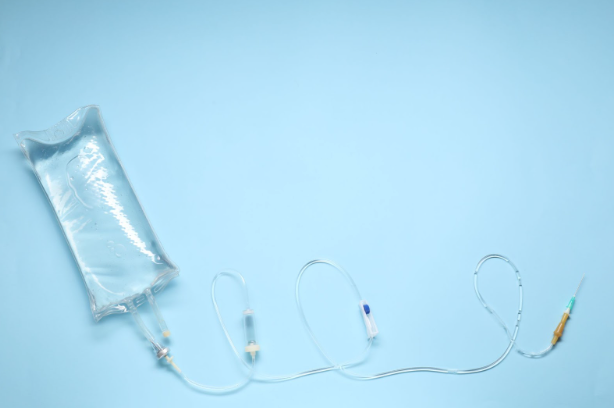How to Reduce PMS Symptoms Naturally
- Modwella

- Apr 13, 2024
- 5 min read
For lots of women, dealing with PMS (Premenstrual Syndrome) can be a monthly challenge. The good news- there are simple and natural ways to alleviate the discomfort and mood swings that women experience every month. There are a wide variety of gentle and effective techniques that you can easily incorporate into your routine.
From dietary changes and herbal remedies, relaxation techniques and regular exercise, there are plenty of actionable and accessible holistic treatments you can do in your own home. So, whether you're looking for ways to ease cramps, banish bloating, or lift your mood during your menstrual cycle, natural remedies are here to save the day.
What Causes PMS?
PMS happens due to changes in hormone levels in a person's body during menstruation. Before a period starts, there are fluctuations in the level of hormones like estrogen and progesterone , which can cause physical symptoms and emotional symptoms alike. These changes can lead to symptoms like mood swings, bloating, cramps, headaches, and tiredness.
Though the exact cause of PMS isn't fully understood, factors like stress, diet, lack of exercise, and genetics can play a role in how severe the symptoms are. Every person's body reacts differently, so what causes PMS for one person might not be the same for another. Keeping track of symptoms and finding healthy ways to manage stress and lifestyle can help reduce the impact of PMS on daily life.
What are the Symptoms of PMS?
PMS brings a variety of symptoms that can affect how someone feels both physically and emotionally. Common PMS symptoms include bloating, which makes the belly feel swollen or full, water retention, and headaches, which can range from mild to severe. Some people may also experience breast tenderness or swelling, making their chest feel sore or uncomfortable.
Emotional symptoms of PMS can vary from person to person but often include mood swings, where feelings change quickly from happy to sad or irritable. Anxiety and irritability are also common, making someone feel tense or easily annoyed. Clinical trials have shown that the levels of serotonin in the body significantly increases between days 17 and 19 of the mental cycle, which is likely the reason these emotional symptoms occur.
Some people may have trouble sleeping or feel more tired than usual, even after getting enough rest. Other symptoms can include changes in appetite, with specific food cravings like sweets or salty snacks or rich foods. Some people might also experience digestive issues like constipation or diarrhea.
Premenstrual Dysphoric Disorder
Premenstrual Dysphoric Disorder (PMDD) is a more severe form of PMS. It brings intense mood swings and emotional symptoms that can disrupt daily life. People with PMDD may experience extreme sadness, anxiety, or irritability in the days leading up to their period.
These feelings can be so intense that they affect relationships, work, and other activities. Physical symptoms like bloating, headaches, and fatigue may also occur. PMDD is different from regular PMS because the symptoms are more severe and can interfere with daily functioning.
Women’s health professionals can help individuals who are experiencing PMDD make lifestyle changes that will help lessen the side effects of this disorder. Getting a complete women’s panel can help your healthcare provider decide which holistic interventions will help you with your menstrual symptoms the most.
Holistic Remedies for PMS
For women who are interested in taking a more natural approach to increase their overall wellbeing when experiencing PMS, there are numerous options that have been shown to help.
Acupuncture
Acupuncture, a traditional Chinese therapy, can help ease PMS symptoms. During acupuncture, thin needles are gently inserted into specific points on the body. It has been shown to help release neurotransmitters like serotonin, dopamine, and endorphins, which reduce both physical and emotional discomfort.
Acupuncture also helps balance hormone levels and improve blood flow, reducing cramps and bloating. Many people find relief from symptoms like mood swings and fatigue after acupuncture sessions. Acupuncture is generally considered safe and can be a helpful addition to other PMS management strategies.
Hormone Replacement Treatment
Hormone replacement treatment, or HRT, can help restore testosterone levels in the body, which can result in light, shorter periods for some women. Along with this, it can decrease PMS symptoms in some women as well which can be a great relief for painful symptoms menstrual cramps and breast pain.
When consulting with healthcare professionals about HRT, it’s important to keep in mind that too much testosterone can suppress ovulation, so communicate changes in your cycle while doing HRT.
Aromatherapy
Aromatherapy utilizing essential oils has been shown to significantly decrease pain levels and reduce the amount of bleeding for women on their periods. The essential oils that have been shown to help the most in the research are lavender oil, rose oil, and a combination of cinnamon, clove, rose, lavender, and almond oils.
Sometimes essential oils can irritate the skin, so using a carrier oil will help protect your skin from any kind of rash or burning sensation that an undiluted essential oil might leave behind.
IV Drips
IV drips, or intravenous therapy, can potentially alleviate PMS symptoms by delivering essential vitamins, minerals, and fluids directly into the bloodstream. This helps replenish nutrients lost during menstruation and rebalance hormone levels.
IV drips may also provide hydration and support overall well-being, reducing fatigue and boosting energy levels. Some IV clinics and IV service companies offer specialized IV drips containing vitamin B6 and magnesium, which are believed to help manage PMS symptoms like mood swings and bloating.
Herbal Remedies
Herbal supplements can offer natural relief for PMS symptoms. A few of the most common include:
Chamomile, known for its calming properties, can help reduce anxiety and promote relaxation, easing mood swings and tension.
Evening primrose oil, rich in essential fatty acids, may alleviate breast tenderness and mood changes by balancing hormone levels.
Chasteberry, also called vitex agnus, can help regulate menstrual cycles and relieve symptoms like bloating and breast discomfort.
Calendula, with its anti-inflammatory properties, may soothe cramps and abdominal discomfort.
Skullcap, a herb known for its calming effects, can help reduce irritability and promote better sleep during PMS.
While these herbal remedies have been used for centuries to manage PMS symptoms, it's essential to use them cautiously and consult with a healthcare provider. Some herbs may interact with medications or have side effects, and their effectiveness can vary from person to person.
Incorporating these herbs into a balanced lifestyle, along with regular exercise, healthy diet, and stress management techniques, can provide holistic support for managing PMS symptoms. Always discuss herbal remedies with a healthcare provider before use, especially if you're pregnant, breastfeeding, or have underlying health conditions.
Supplements
Supplements can be beneficial for managing PMS symptoms.
Vitamin D plays a crucial role in mood regulation, and low levels have been linked to increased PMS symptoms. Taking vitamin D supplements may help alleviate mood swings and improve overall well-being during PMS.
Calcium supplements can ease symptoms like bloating and cramps by relaxing muscles and reducing water retention.
Vitamin B6 is involved in serotonin production, a brain chemical that affects mood, and taking B6 supplements may help reduce irritability and depression associated with PMS.
Diet
Incorporating leafy greens and complex carbs into your diet can help ease PMS symptoms. Leafy greens like spinach and kale are rich in vitamins and minerals, including magnesium and vitamin B6, which can help reduce bloating and mood swings. Complex carbs, found in foods like whole grains, beans, and vegetables, provide steady energy and regulate blood sugar levels, helping to stabilize mood and reduce cravings.
Including these nutritious foods in your meals can support overall well-being and make managing PMS symptoms easier. Remember to pair them with lean proteins and healthy fats for a balanced diet that supports hormonal balance and reduces discomfort during PMS.
Schedule Your In-Home Hormone Treatments and IV-Drips With Modwella
At Modwella, discover convenience and wellness with our in-home hormone treatments and IV-drips. Our expert team ensures personalized care in the comfort of your space. Contact us to schedule now for a revitalizing experience tailored to your needs. Elevate your health journey with Modwella's convenient and effective solutions.
.png)



Comments